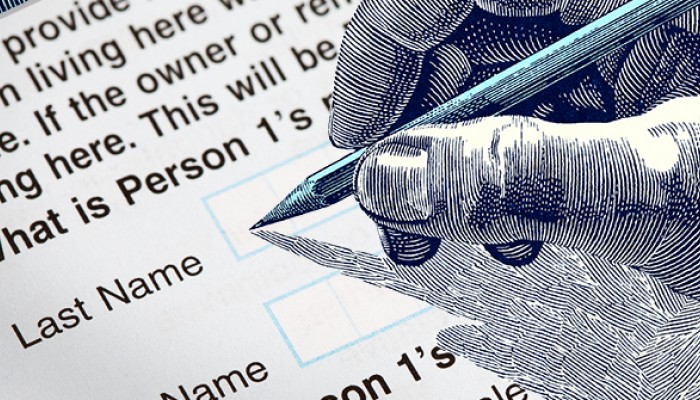As preparations for the 2020 Census get underway, the threat of an added citizenship question has generated concern about how information provided to the government could be used against vulnerable communities. The Supreme Court is set to hear oral arguments April 23 on the Trump administration’s decision to ask about citizenship status, but in the meantime, the Brennan Center has sorted through federal law and policies to figure out the limits to the federal government’s ability to use the information in census answers.
Kelly Percival, counsel in the Brennan Center’s redistricting program, has researched the confidentiality rules and answered a few questions about the security of census information.
Why is the census so important?
The census informs almost every aspect of our daily lives. For starters, census numbers are used for funding social services. We’re talking about things like schools, healthcare, and roads. There are problems that arise when a community goes undercounted. For example, when Congress and the states are deciding whether to give money to a community, they could say, “Oh, we don’t need to build another school there,” because the schoolchildren in that community are undercounted. It’s the same with infrastructure. They might think, “Well, maybe we don’t need to replace the bridge there.” But they would be underestimating how many people use that bridge every day.
Census numbers are also used to apportion our political representatives. If you go undercounted, you could lose political representation in your state legislature and in Congress.
Many people are reluctant to fill out the census form. Is it optional?
No, it’s not optional. The Constitution requires that every person in the country be counted. Congress must conduct a census every 10 years. By law, you as an individual are required to fill out the census form. It’s required because the census is so important. Preventing an undercount to the maximum extent possible ensures that the census most accurately reflects the makeup of the country.
It’s also true that some people are trying to undermine the census and are actively hoping that some communities will go undercounted. They don’t want certain communities to get public funding or to be represented politically. Not filling out the census would be playing into their hands.
Can information from the census be used by law enforcement agencies to track down undocumented immigrants or those suspected of some crime?
No, that’s illegal under numerous federal laws. The federal Census Act, for example, is crystal clear that the Census Bureau can’t disclose your individual census responses and that the government can’t use census data for any reason that’s not purely statistical. Law enforcement would not be a statistical purpose. The easiest way to think about it is that your census responses can’t be used to harm you.
We recognize that some people have serious concerns about confidentiality and how their data might be used when they fill out the census. To those people, I would say that there are many laws that protect the confidentiality of your data, and any attempts to violate them would trigger a fierce legal fight.
The Census Bureau is prohibited by law from releasing any personal information about respondents, even to other government agencies. But the law allows it to release information “in the aggregate.” How does that work?
Individual data or personal responses (for example, the names of the people who live at 123 Smith Street), can never leave the four walls of the Census Bureau. That’s something the law is very clear about — the Bureau cannot release this information no matter what, for any purpose or any reason.
That’s distinct from aggregate statistical data, such as the number of people under age 18 who live in a county. The bureau can produce these sorts of general statistics, and they are used for a variety of legitimate purposes. For example, the Department of Education might use them for identifying disparities in learning opportunities for different racial and ethnic groups.
This is the first time the census will be conducted largely online. Does that pose any new confidentiality risks?
The same confidentiality laws apply, and they protect data that’s provided online the same way they would protect data that you report in person, over the telephone, or through the mail. There are other concerns about the online census related to cybersecurity (such as how the government prevents bad actors from hacking your data), as well as the digital divide (such as unequal access to the Internet). But those concerns have nothing to do with confidentiality.
(Image: blackwaterimages/CSA/Getty/BCJ)

